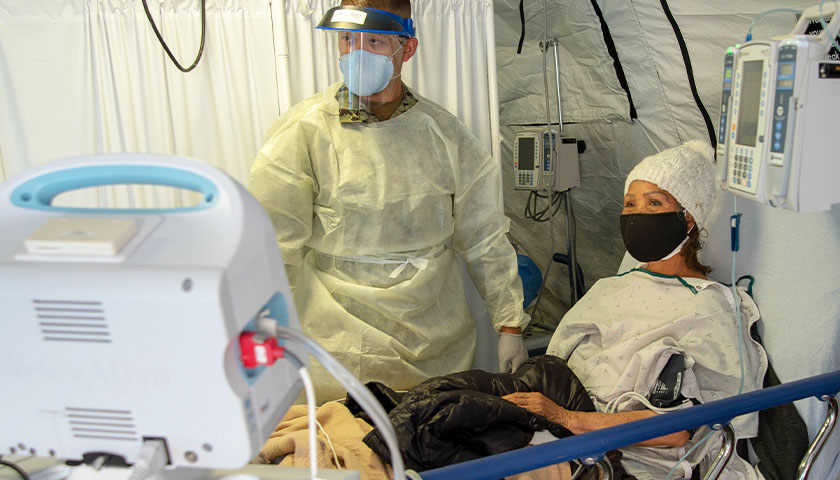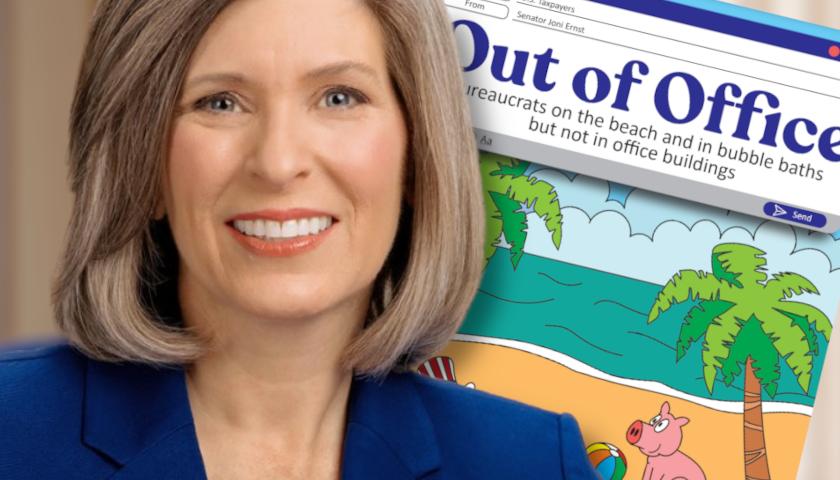The U.S. Food and Drug Administration (FDA) Monday unexpectedly pulled its Emergency Use Authorization (EUA) for monoclonal antibody treatments for COVID-19, dealing a blow to states like Florida which have been using the treatment effectively for months.
“Without a shred of clinical data to support this action, Biden has forced trained medical professionals to choose between treating their patients or breaking the law,” Gov. Ron DeSantis (R) said in response to the FDA’s decree. “This indefensible edict takes treatment out of the hands of medical professionals and will cost some Americans their lives. There are real-world implications to Biden’s medical authoritarianism – Americans’ access to treatments is now subject to the whims of a failing president.”
Asked for its reasoning, Chanapa Tantibanchachai, the FDA’s self-styled monoclonal antibody czar, directed The Florida Capital Star to an FDA press release.
“In light of the most recent information and data available, today, the FDA revised the authorizations for two monoclonal antibody treatments – bamlanivimab and etesevimab (administered together) and REGEN-COV (casirivimab and imdevimab) – to limit their use to only when the patient is likely to have been infected with or exposed to a variant that is susceptible to these treatments,” that release says.
“Because data show these treatments are highly unlikely to be active against the omicron variant, which is circulating at a very high frequency throughout the United States, these treatments are not authorized for use in any U.S. states, territories, and jurisdictions at this time,” it continues. “In the future, if patients in certain geographic regions are likely to be infected or exposed to a variant that is susceptible to these treatments, then use of these treatments may be authorized in these regions.”
The FDA did not specify the data to which it referred in its press release.
That led to a host of follow up questions from The Star.
For example, the COVID-19 vaccine, like the monoclonal antibodies, is not effective in preventing COVID-19. Still, it remains on the market.
“At this time, the available evidence supports the effectiveness of the authorized or approved vaccines, particularly when boosted, in preventing COVID-19 and serious clinical outcomes associated with COVID-19, including hospitalization and death,” Tantibanchachai said when asked why the vaccines have not been pulled due to effectiveness.
Some questions went unanswered, including the following:
- What’s the data to which you vaguely refer in the press release?
- What do you say to Americans who think this is another ploy to get them to take the vaccine? As you know, the FDA infamously said an FDA-approved vaccine was available to the public, when it wasn’t and still isn’t.
The FDA was embroiled in scandal when The Star confirmed in late December that Pfizer’s Comirnaty vaccine, the only one with full FDA approval, was not being distributed in the United States.
Instead, the EUA approved version of the vaccine was, and still is, being distributed. The EUA version of the vaccine was never pulled, even after the full approval of Comirnaty, a rare move for the FDA.
– – –
Pete D’Abrosca is a contributor at The Florida Capital Star and The Star News Network. Follow Pete on Twitter. Email tips to [email protected].






[…] letter was sent on the heels of the Food and Drug Administration (FDA) revoking authorization of monoclonal antibody treatment as a therapeutic for […]